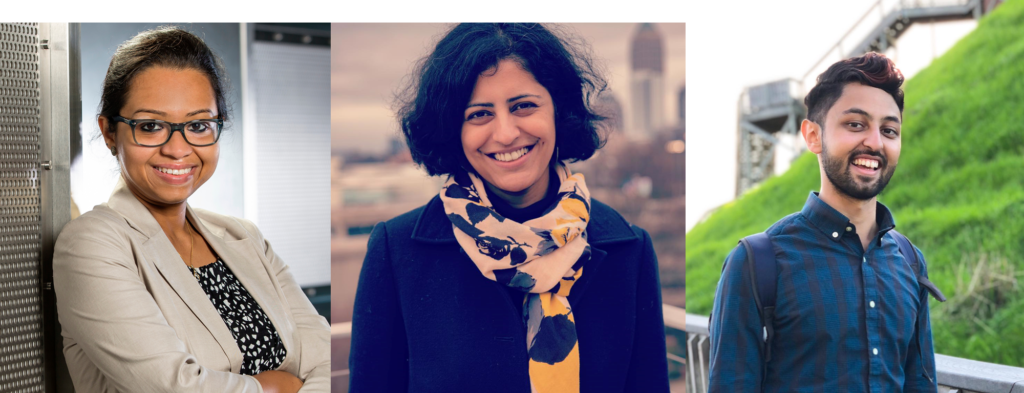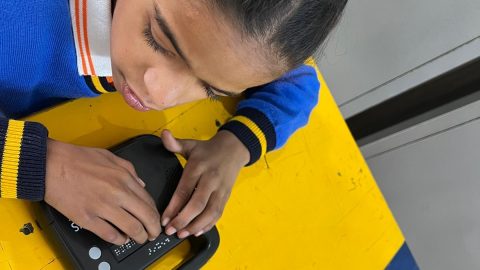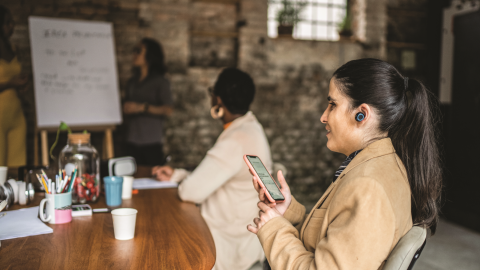Bringing mental health research and AI together
Through our work in the Microsoft AI for Accessibility program, we have learned there are big gaps in mental health services around the globe. In some countries, there may only be one mental health professional per 100,000 people. When paired with the reality that 1 in 5 people have a mental health condition, we are asking how technology can and should be involved. In February, we shared our call for project proposals that aim to accelerate mental health research, data insights, and innovations using AI, and today we want to highlight the projects we’re supporting.
Adaptive text-messaging with Mental Health America
Of the 89% of people who screened positive for major depression through Mental Health America’s online survey last year, 79% do not want to pursue psychotherapy or medications, yet 50% want access to digital tools. There are thousands of mental health apps available, but even the top 30 apps see 97% of people stop using them in the first two weeks. Northwestern University and University of Toronto, in partnership with Mental Health America, are developing an adaptive text-messaging service to help people better manage their mental health. Text messages can reach everyone with bite-sized information and prompts, and to increase people’s engagement, machine learning algorithms will be used to discover how to customize the content and timing of messages. By combining clinical psychology, human computer interaction, and machine learning, they hope to design interventions that are easily delivered, effective, and engaging.
Understanding empathy in text-based peer support
While understanding the time and frequency for when a person wants to engage with mental health prompts is important, the tone and language of messages plays a unique role. The University of Washington, in partnership with TalkLife and Supportiv, are building a natural language model to understand empathy in text-based peer support. By adapting measurements of empathy developed in clinical therapy settings, they intend to create an annotation rubric for the millions of messages in their dataset, train models to recognize aspects of empathy, then offer suggestions to make responses more empathetic. This project will help researchers better understand the language of empathy within a mental health scenario and offer an opportunity to explore how to improve human connection among the peer support volunteer community and those seeking help.

Deliver more impactful services in India
In addition to online peer support forums, crisis lines may be one of the only ways people can get mental health support in some parts of the world. People calling for support can experience long wait times, dropped calls, or be matched with volunteers who don’t share the same sociocultural background or lived experiences. Georgia Tech, working with Befrienders India, is developing a dashboard and models intended to match crisis line callers with volunteers based on demographic and sociocultural characteristics, the needs and issues of the callers, and the lived experiences of the volunteers. The team aims to explore if AI can not only improve the efficiency and staffing of the crisis line system, but more importantly, help deliver more impactful services for people.

More to learn, more work to do
Digital tools and peer services are not replacements for mental health professionals, but our grantees will be investigating how to customize technology support for language, cultural background, help us communicate with each other with more empathy, and get nudges at times and in ways that are the most meaningful. We are grateful for the passion and commitment to inclusion each of our grantees has demonstrated and we look forward to sharing more as this research progresses.
If you are interested in applying for the Microsoft AI for Accessibility program, our next grant application deadline is on July 30, 2020 and is an open call for any project idea related to disability, accessibility, and AI. We will then two have additional focused award rounds, one on Smart Cities and Transportation with a deadline of December 15, 2020, and a second on Education with a deadline of March 12, 2021. Check out our application FAQ’s for more details on the program.








